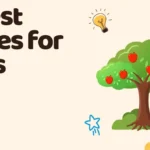Problems are a natural part of life—whether big or small, everyone faces them. But sometimes, explaining a problem in simple words doesn’t capture the depth of the struggle.
That’s where similes come in. A simile is a figure of speech that compares one thing to another using the words like or as. They help us paint vivid pictures with words, making our ideas more powerful and memorable.
When we talk about problems using similes, we make our writing more creative, emotional, and relatable. For example, saying “a problem is like a thorn in the foot” instantly makes the reader feel the pain.
In this article, you’ll discover 40 unique similes for problems with meanings, explanations, and examples. Use them to enrich your writing, poems, speeches, or even everyday conversations. Let’s dive in!
What is a Simile?
A simile is a way of comparing two different things using like or as to create a strong image. Example: “Life is like a roller coaster”. It helps readers imagine and feel the idea more clearly.
40 Powerful Similes for Problems
1. A problem is like a knot in a rope
- Meaning: Complicated and hard to untangle.
- Definition: A confusing situation that takes time to solve.
- Example 1: The issue was like a knot in a rope, refusing to come undone.
- Example 2: Her financial troubles felt like knots she couldn’t untangle.
2. A problem is like a shadow
- Meaning: Always following you around.
- Definition: An issue that lingers wherever you go.
- Example 1: The guilt was like a shadow, haunting him daily.
- Example 2: Problems can be like shadows—impossible to escape.
3. A problem is like quicksand
- Meaning: The more you struggle, the deeper you sink.
- Definition: A situation that worsens with resistance.
- Example 1: Arguments at work were like quicksand.
- Example 2: His lies turned into quicksand, trapping him further.
4. A problem is like a storm cloud
- Meaning: Dark and threatening.
- Definition: Trouble that overshadows happiness.
- Example 1: The misunderstanding hung like a storm cloud over the family.
- Example 2: Fear was like a storm cloud blocking her sunshine.
5. A problem is like a splinter
- Meaning: Small but painful.
- Definition: A minor issue that causes great irritation.
- Example 1: His rude comment was like a splinter in her mind.
- Example 2: That mistake was a splinter in the project’s success.
6. A problem is like a maze
- Meaning: Confusing with no clear way out.
- Definition: A complex situation with many twists and turns.
- Example 1: Legal issues were like a maze with endless dead ends.
- Example 2: Life sometimes feels like a maze of problems.
7. A problem is like carrying a heavy backpack
- Meaning: A burden that weighs you down.
- Definition: Stress that drains your energy.
- Example 1: His debts were like a heavy backpack he couldn’t remove.
- Example 2: Grief is like carrying a backpack filled with stones.
8. A problem is like an itch you can’t scratch
- Meaning: Annoying and persistent.
- Definition: An irritating issue that doesn’t go away.
- Example 1: His curiosity was like an itch he couldn’t scratch.
- Example 2: The memory was like an itch always bothering her.
9. A problem is like a puzzle with missing pieces
- Meaning: Incomplete and frustrating.
- Definition: A situation without enough information to solve.
- Example 1: The investigation was like a puzzle with missing pieces.
- Example 2: Love can be like a puzzle you can’t finish.
10. A problem is like a thorn in the foot
- Meaning: Painful and hard to ignore.
- Definition: A constant source of discomfort.
- Example 1: That argument was like a thorn in his foot.
- Example 2: Financial stress is like walking with a thorn every day.
11. A problem is like a ticking clock
- Meaning: Pressing with time pressure.
- Definition: A situation that needs urgent solving.
- Example 1: The deadline was like a ticking clock haunting her.
- Example 2: His health issue felt like a ticking clock.
12. A problem is like tangled earphones
- Meaning: Frustrating and time-consuming.
- Definition: Something unnecessarily complicated.
- Example 1: Miscommunication was like tangled earphones.
- Example 2: Her day was like earphones knotted beyond repair.
13. A problem is like a dark tunnel
- Meaning: Hard to get through, but with hope at the end.
- Definition: A tough phase with light eventually appearing.
- Example 1: Depression was like a tunnel with no end.
- Example 2: She saw her problems as tunnels leading to sunshine.
14. A problem is like wildfire
- Meaning: Spreads quickly if ignored.
- Definition: A small issue that grows out of control.
- Example 1: Rumors were like wildfire in the school.
- Example 2: Unchecked mistakes are like wildfire.
15. A problem is like a locked door
- Meaning: Blocks progress.
- Definition: An obstacle that needs the right key.
- Example 1: Success felt like a locked door without a key.
- Example 2: Their communication gap was a locked door.
16. A problem is like walking on thin ice
- Meaning: Risky and fragile.
- Definition: A dangerous situation requiring care.
- Example 1: His job security was like walking on thin ice.
- Example 2: Friendships can be like thin ice after betrayal.
17. A problem is like rust on metal
- Meaning: Slowly damaging.
- Definition: Small issues that eat away over time.
- Example 1: Neglect is like rust on relationships.
- Example 2: Corruption is like rust weakening society.
18. A problem is like a ticking bomb
- Meaning: Explosive if ignored.
- Definition: A dangerous issue that can erupt suddenly.
- Example 1: His anger was like a ticking bomb.
- Example 2: Financial instability is a ticking bomb for many families.
19. A problem is like a tangled web
- Meaning: Complicated and messy.
- Definition: A trap created by lies or mistakes.
- Example 1: His secrets formed a tangled web.
- Example 2: Office politics was like a sticky web.
20. A problem is like a sinking ship
- Meaning: Doomed unless fixed.
- Definition: A situation getting worse.
- Example 1: Without funding, the project was like a sinking ship.
- Example 2: Their marriage felt like a sinking ship.
21. A problem is like a broken mirror
- Meaning: Painful to fix, dangerous to touch.
- Definition: An issue that leaves scars.
- Example 1: Trust once broken is like a shattered mirror.
- Example 2: Their fight was a broken mirror no one dared touch.
22. A problem is like a clogged drain
- Meaning: Blocks everything else.
- Definition: A single issue stopping flow and progress.
- Example 1: Miscommunication was like a clogged drain in their teamwork.
- Example 2: Stress is like a drain that blocks peace of mind.
23. A problem is like thorns on a rose
- Meaning: Comes with beauty but causes pain.
- Definition: Trouble hidden in good things.
- Example 1: Fame is like a rose with thorns.
- Example 2: Success often carries thorns of pressure.
24. A problem is like a leaky roof
- Meaning: Gets worse if not repaired.
- Definition: A small issue that leads to big damage.
- Example 1: Ignoring homework is like leaving a leaky roof.
- Example 2: Minor conflicts become storms if left like leaks.
25. A problem is like carrying chains
- Meaning: Restrictive and heavy.
- Definition: A situation holding someone back.
- Example 1: Guilt is like carrying chains around.
- Example 2: Debt feels like chains tied to the feet.
26. A problem is like a roadblock
- Meaning: Stops progress.
- Definition: A sudden obstacle.
- Example 1: His fear was a roadblock to success.
- Example 2: Problems are roadblocks testing our patience.
27. A problem is like a hidden thorn in a shoe
- Meaning: Invisible but painful.
- Definition: A small but persistent trouble.
- Example 1: Anxiety is like a thorn in your shoe.
- Example 2: Distrust in a team is like a hidden thorn.
28. A problem is like broken brakes
- Meaning: Dangerous if not fixed.
- Definition: Something that prevents control.
- Example 1: Addiction is like broken brakes.
- Example 2: Anger with no limits is like broken brakes.
29. A problem is like tangled hair
- Meaning: Frustrating to fix.
- Definition: A messy situation requiring patience.
- Example 1: Her tasks were like tangled hair.
- Example 2: Life sometimes feels like combing endless tangles.
30. A problem is like fog on the road
- Meaning: Makes it hard to see clearly.
- Definition: Confusion covering the truth.
- Example 1: Fear is like fog clouding judgment.
- Example 2: Problems can be fog blinding the path.
31. A problem is like a stubborn stain
- Meaning: Difficult to remove.
- Definition: An issue that leaves lasting marks.
- Example 1: Failure was like a stain on his reputation.
- Example 2: Trauma is like a stain on the heart.
32. A problem is like a thorn bush
- Meaning: Painful to go through.
- Definition: Trouble that injures anyone involved.
- Example 1: Their feud was like walking through a thorn bush.
- Example 2: Debt felt like a thorn bush surrounding him.
33. A problem is like cracked glass
- Meaning: Fragile and easily broken further.
- Definition: A weak situation close to collapse.
- Example 1: Trust was like cracked glass.
- Example 2: Their friendship stood on cracked glass.
34. A problem is like spilled ink
- Meaning: Hard to erase.
- Definition: A mistake that leaves a permanent mark.
- Example 1: Her words were like spilled ink she couldn’t take back.
- Example 2: Rumors spread like spilled ink on paper.
35. A problem is like a locked cage
- Meaning: Traps you inside.
- Definition: Restricts freedom.
- Example 1: Poverty is like a locked cage.
- Example 2: Fear is a cage with invisible bars.
36. A problem is like weeds in a garden
- Meaning: Spread if ignored.
- Definition: Small troubles growing big.
- Example 1: Laziness is like weeds destroying success.
- Example 2: Resentment grows like weeds in love.
37. A problem is like smoke in a room
- Meaning: Uncomfortable and suffocating.
- Definition: A situation clouding peace.
- Example 1: Lies are like smoke choking the truth.
- Example 2: Problems can fill the air like smoke.
38. A problem is like an avalanche
- Meaning: Starts small, becomes unstoppable.
- Definition: A situation that grows too big to control.
- Example 1: Debt was like an avalanche crushing him.
- Example 2: Arguments at work turned into an avalanche.
39. A problem is like a thorny crown
- Meaning: Painful responsibility.
- Definition: A heavy burden to carry.
- Example 1: Leadership can be a thorny crown.
- Example 2: Fame often feels like a crown of thorns.
40. A problem is like broken glass on the floor
- Meaning: Dangerous to step on.
- Definition: A situation that hurts anyone involved.
- Example 1: Their argument was like broken glass everywhere.
- Example 2: Handling secrets is like stepping on broken glass.
How to Use These Similes in Creative Writing
Similes breathe life into words. Here’s how you can use them:
- Poems: Add emotion by comparing problems to shadows, storms, or thorns.
- Stories: Use similes to describe a character’s struggles vividly.
- Songs: Make lyrics relatable by using everyday images like “tangled earphones” or “fog on the road.”
- Essays: Enrich your academic writing with creative expressions.
Tip: Don’t overload your work with similes—use them wisely to create impact.
FAQs
What are similes for problems?
Similes for problems are creative comparisons that describe difficulties using “like” or “as,” making them easier to visualize.
Why should I use similes in writing?
Similes make writing more vivid, emotional, and memorable. They help readers connect with your ideas.
Can I use similes in essays?
Yes! Using similes in essays adds creativity and clarity, but use them sparingly and appropriately.
What is the difference between a simile and a metaphor?
A simile uses like or as (e.g., problems are like storms), while a metaphor states something is something else (e.g., problems are storms).
Which simile best describes a small but annoying problem?
“A problem is like a splinter” or “a thorn in the shoe” are perfect for small but irritating troubles.
Conclusion
Problems may be an unavoidable part of life, but the way we talk about them can make all the difference. By using similes, we turn abstract difficulties into clear, relatable images.
From knots and shadows to storms and broken glass, similes help us express emotions with power and precision.
Whether you’re writing poetry, songs, essays, or even having a conversation, these similes can enrich your expression and make your words memorable.
So the next time you face a difficulty, try describing it with a simile—you’ll see how much more impactful your words become.










